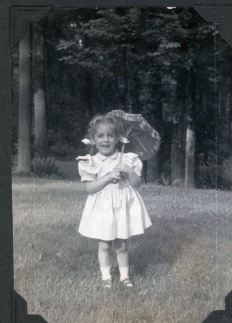
As a retired English professor and lifelong lover of language, I listen carefully to phrases that seem to proliferate at any given time. Recently it has been the phrase “no worries.” It would make sense to me if the context was one where I had been worried. However, in its present usage, I remain frequently baffled.I am driving through Taco Bell, ordering food, thanking the cashier who responds, “No worries.” I order coffee and thank the barista who responds, “No worries.” In both of these cases, whether over a loudspeaker or in person, I would expect the reply to be “You’re welcome.”
Of course, my curiosity of this usage took me to the internet. There I learned that this usage has “infected the American language.” I laughed at the verb “infected” since it implied a disease caught from some other place. My response to the phrase has been somewhat similar. “Who started this misuse anyway? Must be an import!” It appears that I could blame it on the Australian beer drinkers. This seems unlikely, however. Surely Australian beer drinkers can’t have had that much influence.
How far has this usage spread? Does anyone where you live still reply “You’re welcome” when they are thanked?

No worries for my “Like” (ha ha).
LikeLike
It’s funny how these new phrases come into common use. ‘No worries,’ doesn’t make sense to me in response to ‘thank you.’ But I think it works in response to an apology – ‘I’m sorry.” – “No worries” perhaps merging, ‘no problem,’ and ‘don’t worry about it.’ Anyway that’s my guess. 🙂
LikeLike
I agree that it would make sense used like that.
LikeLiked by 1 person
It’s a funny phrase. I heard another one at the grocery store where the shopper thanked the bagger who replied: no way.
LikeLike
That is priceless.
LikeLiked by 1 person
We didn’t have the term ‘You’re welcome” here in Australia but rather ‘that’s okay, no worries’ in reply to ‘Thank you’ but since American TV & McDonald’s have had such influence here it is now widely used.
‘No worries’ was shortened from the above, it’s a colloquialism used in many settings… meaning the person using it were quite happy to oblige the action they’re being thanked for. I don’t know where the drinkers emphasis comes from though.
Jennifer
LikeLike
Thanks. That makes some sense in the full phrase.
LikeLiked by 1 person
It’s still largely “Thank you” around here. The most recent infecting phrase I hear is “actually”. It is as common as “like” or “you know” were in the 80’s.
LikeLike
I hear “actually” a lot from my grandchildren.
LikeLike
I really laughed at the use of the term infected. It is an infection – a disease of language. I have heard it used here in SA but our usage probably came from the US and not Oz. We are great copiers of the US.
LikeLike
I wouldn’t have known that. I guess I thought you copied England more.
LikeLike
I can testify to it being ubiquitous in New Zealand.
Another well-used term down there is ‘awesome’. Everything – from a meat pie to the time of an appointment – is awesome.
LikeLike
I think that peaked here though I used to hear it all the time.
LikeLiked by 1 person
I’m guilty of “awesome”. It started as a joke based on the song in that Lego movie, and it stuck.
LikeLiked by 1 person
‘No worries’ is definitely antipodean in origin, widely used in Australia and New Zealand. It started to get some use in London because so many Australians live or work there. ‘You’re welcome’ is very American, and seldom heard in Britain. However, we do appear to have imported your ‘Have a nice day/evening’, which is heard in shops here all the time.
One similar expression frequently heard here is ‘No problem’.
Best wishes, Pete.
LikeLike
Is there a British response to ‘Thank you?”
LikeLike
Cool!
LikeLike
I use this phrase all the time these days and I’m very conscious of doing so as I don’t generally choose to adopt the current vernacular. Thinking back I’m fairly sure I ‘caught’ it from a young friend who was recently back from Australia and is married to an Australian. That said, my partner is a Kiwi and I’ve never once heard him use it. Why have I adopted it? As Pete says, it’s a variation on ‘no problem’ , in its turn a variation on ‘you’re welcome’. For some reason it feels very positive to me: it’s upbeat. Maybe I need some of that feeling these days!
LikeLike
I love that it is cropping up in Cornwall.
LikeLike
Jamaicans? Maybe we’re to blame 😅
LikeLike
Good to know!
LikeLiked by 1 person
Listening to teen speak can be trying on the ears.
LikeLike
And these people were no longer teens, Pete.
LikeLike
I still say and prefer “You’re welcome” in response to “Thank you.”
But one of my language peeves is the use of “guys.” Example: a table of six women and men – all over the age of 50 – are seated in a restaurant and the server (who is somewhere in their 20s) comes over and says “How’re you guys doing? What can I get you guys to drink?” I don’t know why this annoys me but it does😂.
LikeLike
I sometimes say “you guys” myself. I have no idea why.
LikeLiked by 1 person